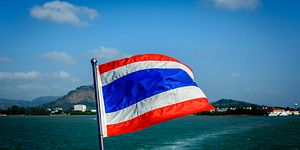Last week, reports surfaced that the Thai military had launched a facility to preserve Thailand’s national security in outer space. Though details still remain unclear about the facility and its future prospects, the development nonetheless spotlighted the broader issue of Thailand’s development of its national space policy.
Thailand has long had an interest in outer space, with its involvement in areas such as research and development and satellite navigation dating back decades and the involvement of agencies like the Geo-Informatics and Space Technology Development Agency (GISTDA). But over the past few years, there have been efforts to both better manage and expand the development of space policy and to expand certain aspects of it through various initiatives, such as the creation of the National Space Policy Committee and the development of satellites.
Last week, Thailand’s efforts to develop its space capabilities were in the headlines again with the announcement of a new military space unit. Per media reports, the Thai military had formally launched a new space operations center to enhance national security in space and protect the country against future threats.
According to the state-run National News Bureau of Thailand (NNT), the new space operations center, which was launched on August 17, was intended to serve as the primary organization to preserve Thailand national security in the space domain. The space center would reportedly help lay the foundation for the development of several missions including space operations, outer space patrols, satellite communications, and international engagement in certain space-related activities.
Thus far, little in the way of specifics has been revealed about the new space operations center, including its exact size and structure. Per NNT, several units will be operating as part of it, including those that would help with space mission planning, development, data collection and interpretation; monitoring threats from outer space, creating a satellite and space object database; outer space patrols, satellite system maintenance; outer space detection; space database creation, and providing support for other units’ operations and maintenance.
Without a sense of further details, including the mission set of the space operations center and how it will fit in and coordinate with other institutions in Thailand, it is difficult to evaluate the significance of this launch. Nonetheless, the development bears noting within the broader issue of Thailand’s ongoing development of its national space policy and its future direction as the priorities of government of Prime Minister Prayut Chan-o-cha continue to take shape in the months to come.

































